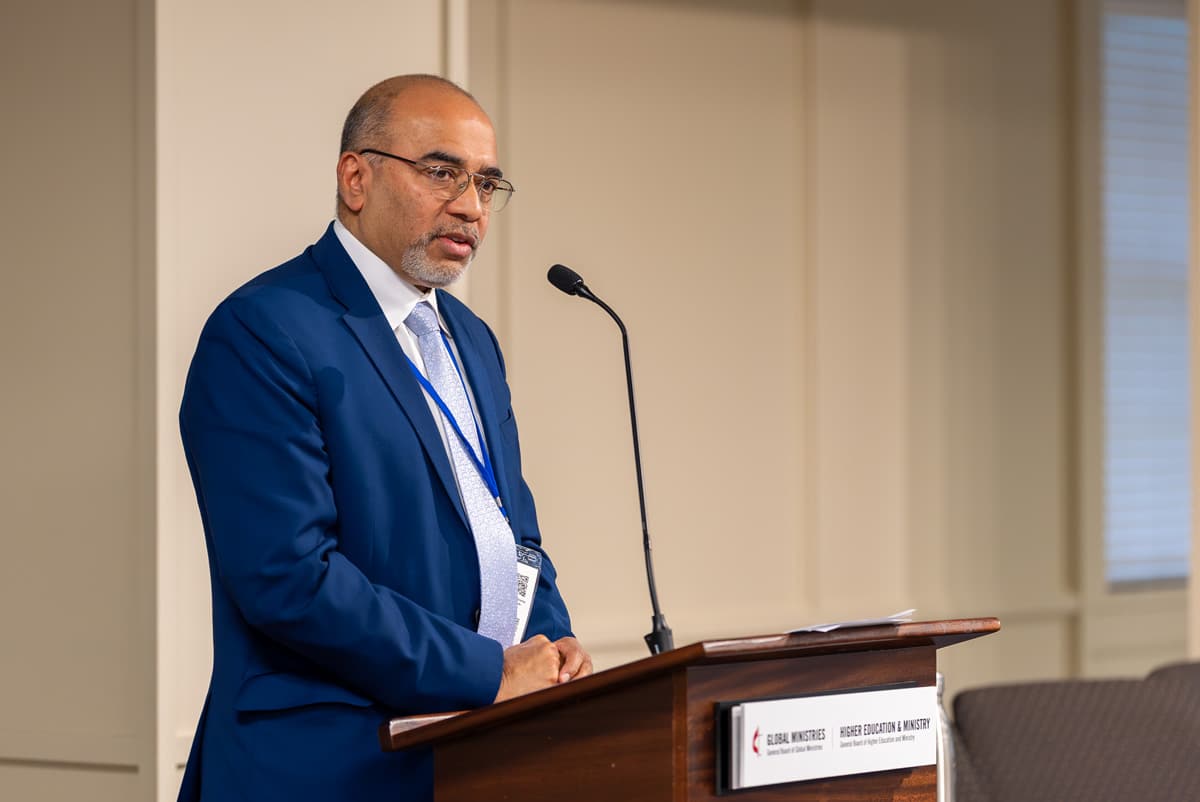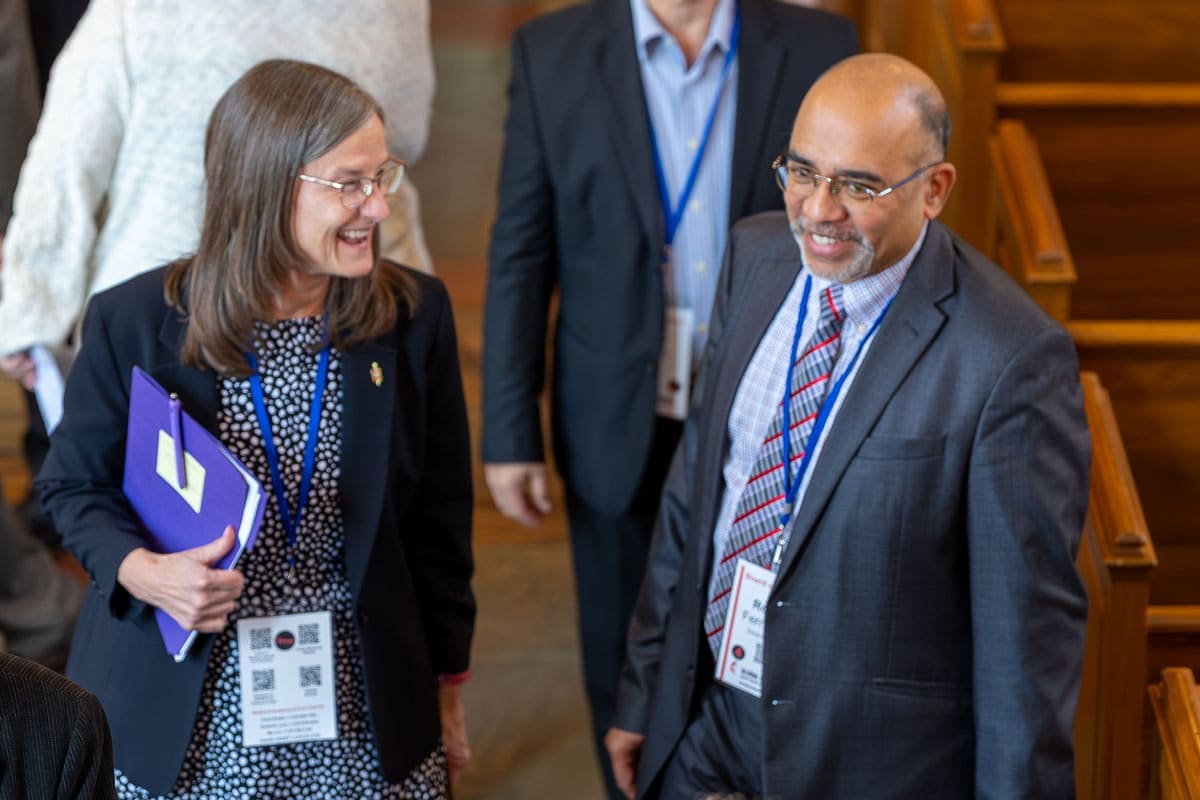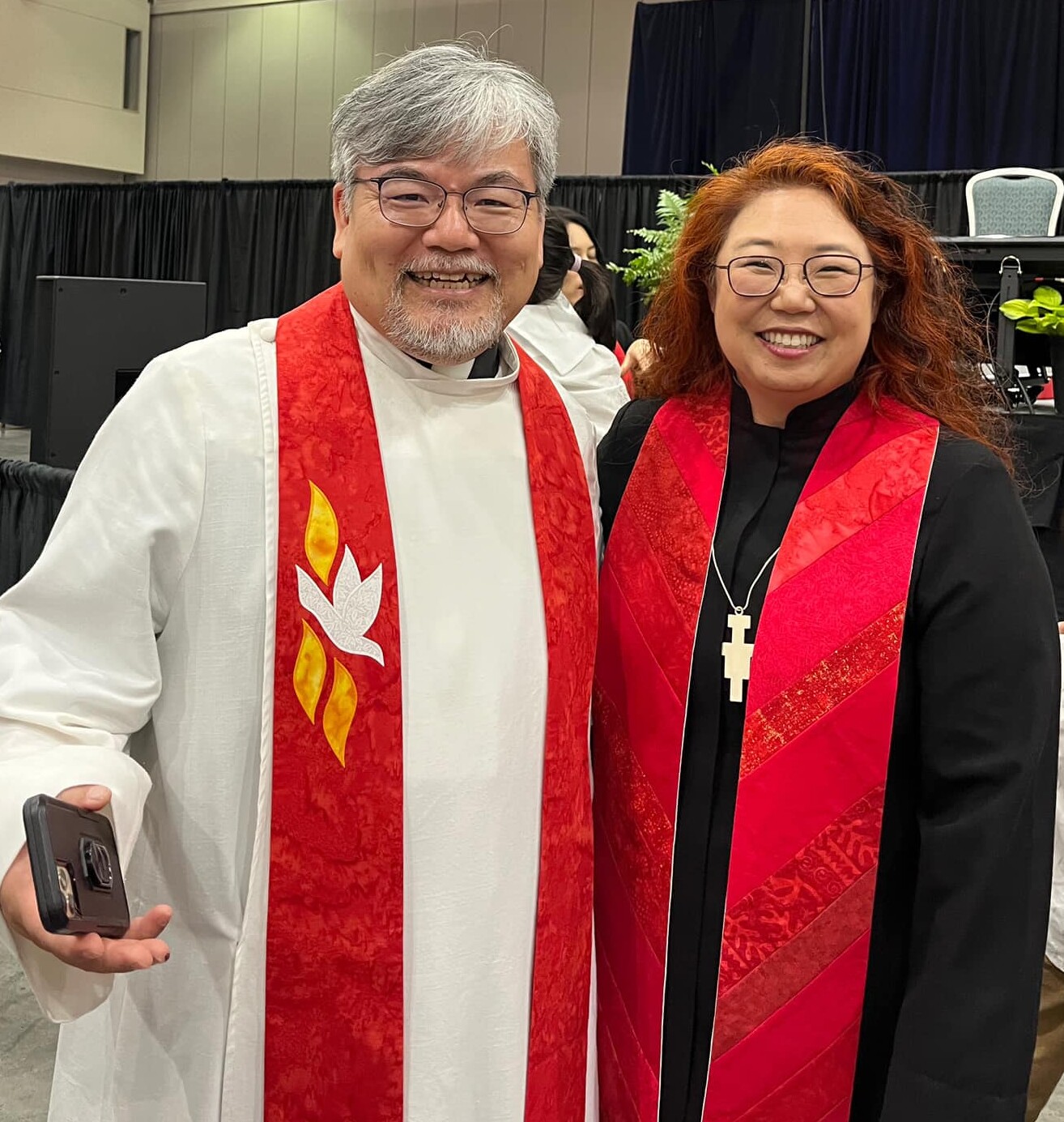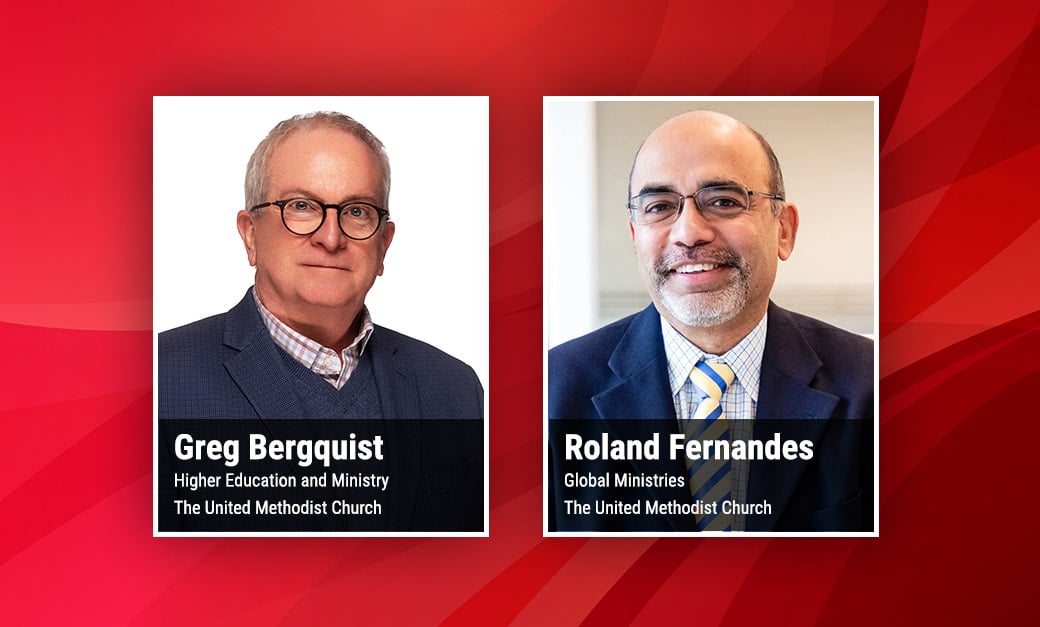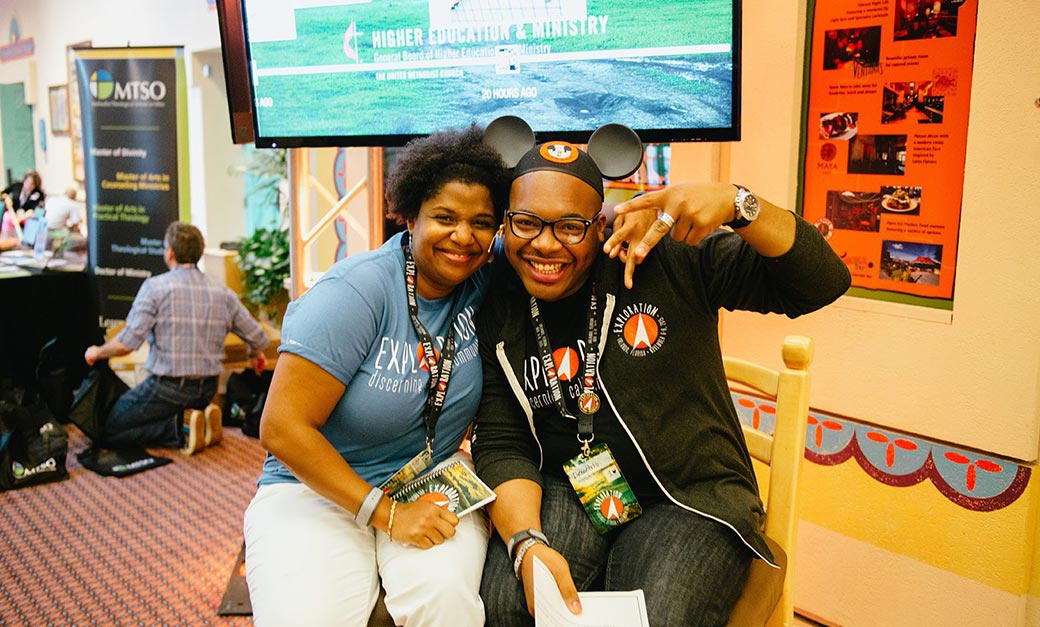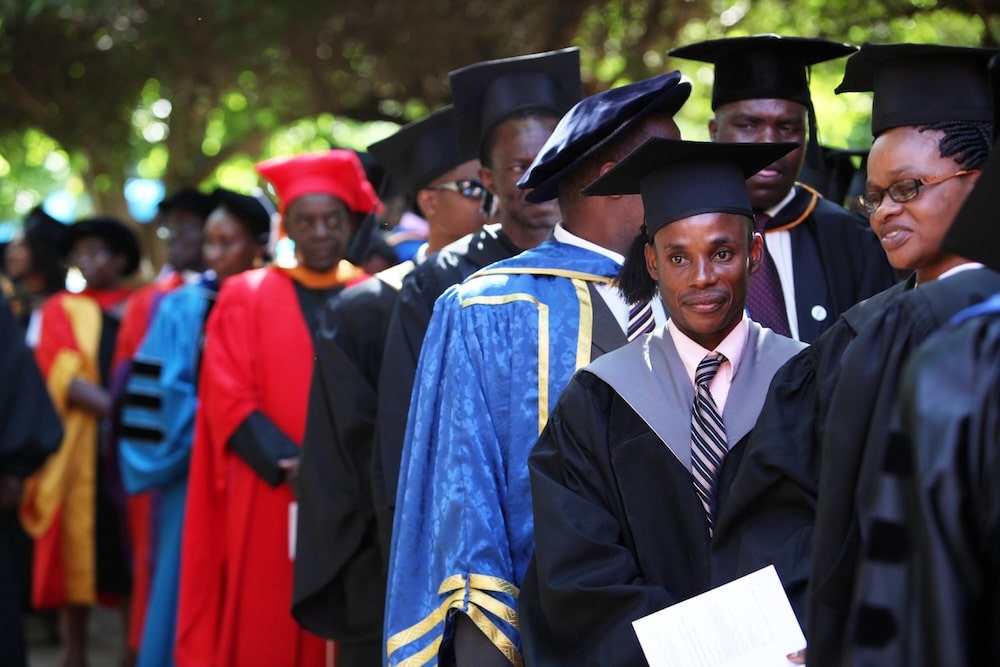Methodist Educational Leaders Affirm Church Unity and Establish Africa Senate
Methodist educational leaders and members of the African Association of Methodist Institutions of Higher Education (AAMIHE) and the African Association of United Methodist Theological Institutions (AAUMTI) are gathered in Johannesburg, South Africa, this week for a joint conference. The leaders affirmed their commitment to church unity and established the “Africa Senate,” the body that will evaluate and support the development of Methodist education in a Pan-African perspective. The General Board of Higher Education and Ministry (GBHEM), the leadership development agency of The United Methodist Church (UMC), is a key partner in this initiative.
Africa Senate Established
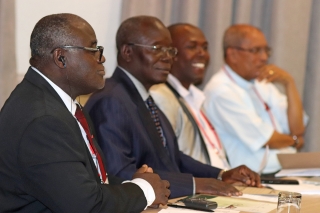
Delegates to the Joint AAMIHE-AAUMTI Conference voted on the creation of the Africa Senate and established a committee with representatives from schools, colleges, theological schools, and universities. The committee will have the task of implementing this new body. The Africa Senate will provide guidelines for the evaluation and support of Methodist educational institutions on the whole continent of Africa based on church principles, reporting procedures, and peer-review processes.
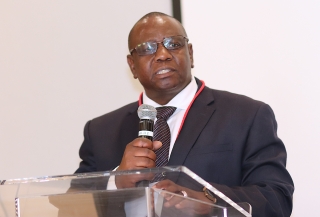
Professor Munashe Furusa, vice-chancellor of Africa University and AAMIHE president, defined this decision as a historic moment which will have a profound impact in Africa for years to come. “The committee will work on operationalizing ideas…coming up with a document that frames how Africa does its senate,” said Furusa. Albert Coleman, Ph.D., president of the United Methodist University in Liberia, added, “the document needs to be generic, not specific to any one country, [to provide room for contextuality].”
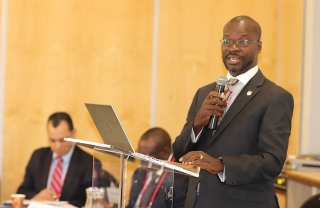
Through these processes, areas such as church-relatedness, financial health, governance, and academic quality will be monitored continually. Maaraidzo Mutambara, Ph.D., interim director Institute of Theology and Religious Studies at Africa University, chaired a session exploring this matter and Rev. James Labala, D.Min., AAUMTI president, guided the discussion that ultimately led to this historic decision.
Focus on Wesleyan Education, Ethical Principles and Church Unity
The theme of the joint AAMIHE-AAUMTI conference was “Methodist Education in Africa and it’s Global Impact.” Conference participants discussed the need to maintain connectionalism as a guiding principle for churches and educational institutions. The leaders in Africa want to recognize the diversity of views and focus on the urgent tasks of providing an education based on Christian values, promoting literacy, eradicating poverty and fighting corruption. Shaping a person’s character and providing ethical formation is one of the key contributions of Wesleyan and Methodist education in Africa.
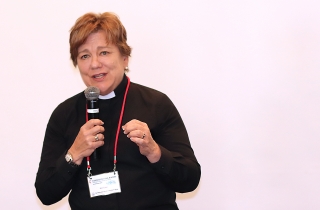
Conference attendees agreed that “education is part of salvation,” and affirmed deeply a commitment to Church unity. Rev. Dr. Kim Cape, general secretary at GBHEM, responded to the overwhelming affirmation of unity and the incredible impact of Methodist education on the African continent by proposing that Methodist educators in Africa work together with GBHEM to bring new legislation to the General Conference of The United Methodist Church. Cape proposed this partnership to better channel resources to educational projects that are really making a difference in places like Côte d’Ivoire, Democratic Republic of Congo, Liberia, Mozambique, and other African countries.
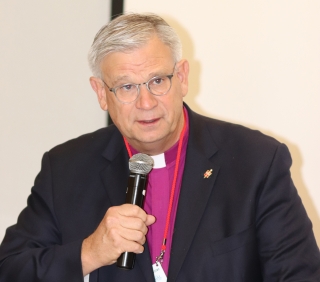
Bishop William McAlilly, United States, Southeastern Jurisdiction, Nashville Episcopal Area, shared his experiences as a United Methodist in Mississippi. McAlilly also spoke to the life-saving expressions of love, care and connectionalism he witnessed in places like Kinshasa (Democratic Republic of Congo), Mutare (Zimbabwe), and Soweto (South Africa).
Fulgence Nyengele, professor of Pastoral Care and Counseling in the Chryst Chair in Pastoral Theology, and director, Master of Arts in Counseling Ministries Program at the Methodist Theological School in Ohio, presented on “The Value of Global Consciousness for Methodist Theological Education in African Contexts” (“La valeur de la conscience globale dans l’éducation théoloqique méthodiste en Afrique”). He described how theological students in Ohio (United States) have learned from students in Mulungwishi (Congo).
Professor Daryl Balia, deputy vice-chancellor at North-West University, reported on “Promoting Quality and Accessibility to Education,” urged Methodist educational leaders in Africa to utilize the tools of Black Theology to question colonialism.
Bishop Ziphozihle Siwa, Methodist Church of Southern Africa and president of the South African Council of Churches, reminded attendants that in the African context, Church unity is a matter of life and death.
About AAMIHE and AAUMTI
More than 100 leaders involved in higher and theological education are attending this gathering, which includes the Global Chaplaincy Training Program, the Francophone Consultation, as well as the AAMIHE and AAUMTI business meetings.
Furusa serves as AAMIHE’s president and Labala serves as the AAUMTI president. For a full list of related institutions for each organization, see below.
AAMIHE Members:
- Africa University, Zimbabwe
- Université E. Lumumba, Wembo-Nyama, République démocratique du Congo
- Ghana Methodist College/University, Ghana
- Université Méthodiste de Kabongo, République démocratique du Congo
- Université Méthodiste de Kamina, République démocratique du Congo
- Institut Supérieur Pédagogique de Kamina, République démocratique du Congo
- Institut Supérieur des Techniques Médicales de Kamina, République démocratique du Congo
- Université Méthodiste de Katanga, République démocratique du Congo
- Kenya Methodist University, Kenya
- Université Méthodiste de Kindu, République démocratique du Congo
- Universidade Metodista de Angola, Angola
- Université Méthodiste de Côte d’Ivoire, Côte d’Ivoire
- Universidade Metodista Unida de Moçambique, Moçambique
- Nyadire Teachers’ College, Zimbabwe
- Nyadire Nursing School, Zimbabwe
- United Methodist University, Liberia
- United Methodist University, Sierra Leone
- Wesley University of Science and Technology, Nigeria
- Wesley College, Tanzania
- Wesley College of Theology and Management, Sierra Leone
AAUMTI Members:
- Africa University, Department of Theology, Mutare, Zimbabwe
- Banyam Theological Seminary, Jalingo, Taraba
- Bishop Innis School of Theology, United Methodist University, Monrovia, Liberia
- Bishop Wenner School of Theology, United Methodist University, Sierra Leone
- Seminário Teológico de Cambine, Moçambique
- Department of Theology, Religious Studies, and Counseling, Kenya Methodist University, Kenya
- École Théologie de Katako, République Démocratique du Congo
- Faculdade de Teologia, Malanje, Angola
- Faculté Méthodiste de Théologie de Kamina, République Démocratique du Congo
- Faculté Méthodiste de Théologie de Kasaji, République Démocratique du Congo
- Faculté Méthodiste de Théologie de Lubumbashi, République Démocratique du Congo
- Faculté Méthodiste de Théologie de Musumba, République Démocratique du Congo
- FATEB, Extension Yaoundé, Cameroon
- Gbarnga School of Theology, United Methodist University, Liberia
- Centro de Treinamento Teológico de Gondola, Sofala, Moçambique
- Instituto Metodista de Teologia Bispo Emílio de Carvalho, Angola
- Institut Supérior de Théologie de Abidjan (ISTHA), Côte d’Ivoire
- Faculté de Théologie, Université Méthodiste de Kabongo, République Démocratique du Congo
- Kafakumba Pastor School, Zambia
- Faculté de Théologie, Université Méthodiste de Katanga, République Démocratique du Congo
- Faculté de Théologie, Université Méthodiste de Kindu, République Démocratique du Congo
- Methodist Theological Institute, Nigeria
- Methodist Theological School, Burundi
- Faculté de Théologie Wembo-Nyama, Université Patrice Lumumba, République Démocratique du Congo
- Seth Mokitimi Methodist Seminary, South Africa
- Faculté de Théologie de Mulungwishi, République Démocratique du Congo
- Faculdade de Teologia, Universidade Metodista de Angola, Angola
- United Methodist Bible College, Uganda
- United Methodist Seminary, Kenya
- United Theological College, Zimbabwe
GBHEM’s Commitment to Developing Educational Institutions in Africa
Since the creation of Africa University (AU), GBHEM has supported African education. AU was the first Methodist university in Africa, opening its doors in 1992. More than a quarter century later, the growth of Methodist education on the continent mirrors the growth of the United Methodist Church in the region. There are now more than 20 institutions connected through AAMIHE and 30 theological institutions related to AAUMTI.
“The 1784 General Conference of the Methodist Episcopal Church famously decided to ‘erect a school in the vicinity of every church,’” said Amos Nascimento, associate general secretary for Global Education and New Initiatives at GBHEM. “This is exactly what we see in Africa. While church leaders focus on church-planting, GBHEM has supported the complementary process of helping educational leaders plant schools, colleges, universities, and theological institutions.”
For the past 25 years, at least two institutions have been created per year. They serve thousands of students and impact local communities. Schools most recently established include the United Methodist University of Mozambique in 2017 and the United Methodist University of Sierra Leone in 2018. Moreover, two new theological institutions were created in 2018: The Bishop Wenner School of Theology in Freetown, Sierra Leone, and the United Methodist Theological Seminary in Nairobi, Kenya.
“This has been a priority for our agency in the last two decades,” said Cape. “Our plan is to support this growth even more with the creation of decentralized initiatives led by our people and our institutions in Africa, who will lead us into the future.” The strengthening of AAMIHE and AAUMTI, formation of new leaders, and the creation of the Africa Senate are important steps in this direction. “We will now work together to create the funding structure for the sustainability of this project,” she said.
Visit the GBHEM LEaD Hub Facebook page or GBHEM.org to learn more about GBHEM’s global initiatives.
About GBHEM: As the leadership development agency of The United Methodist Church, the General Board of Higher Education and Ministry’s mission is to build capacity for United Methodist lay and clergy leaders to discover, claim and flourish in Christ’s calling in their lives, by creating connections and providing resources to aid in recruitment, education, professional development and spiritual formation. Every elder, deacon and licensed local pastor benefits from our training and candidacy programs. Many young adults find help in clarifying their vocation and God’s call on their lives through our leadership and discernment programs. Follow us on Twitter and Facebook: @GBHEM.
Related Posts
United Methodist mission and education agencies form new boards of directors. October 15, 2024 | by Elliott Wright NASHVILLE, Tenn. – The general boards of Higher Education and Ministry and Global Ministries affirmed their partnership in mission and ministry during a joint meeting of their boards of directors in Nashville...
Higher Education and Ministry and Global Ministries boards meet in Nashville for organization, orientation and connection. Bishop Sandra Steiner-Ball with Roland Fernandes. The bishop gave the sermon during opening worship for the joint GBHEM and GBGM meeting taking place October 14 - 17 in Nashville, Tenn. Photo: Adam Bowers...
Rev. MiRhang Baek, Virginia Annual Conference, The United Methodist Church, with spouse Rev. TaeWon Kang. Participating in the Clinical Pastoral Education (CPE) program at the General Board of Higher Education and Ministry’s Center for Integrative Pastoral Practice (CIPP) has profoundly transformed my self-awareness, personal growth and ministry as...
